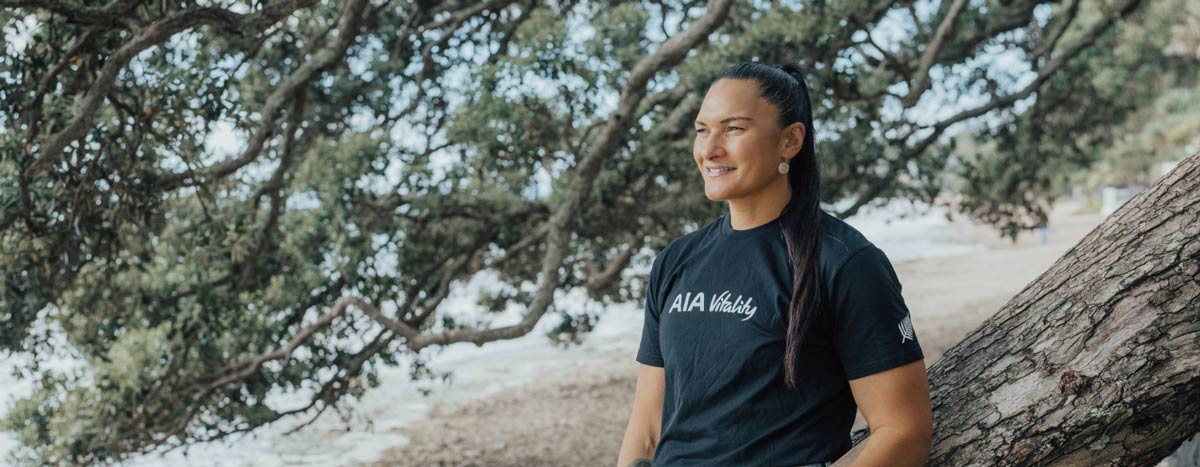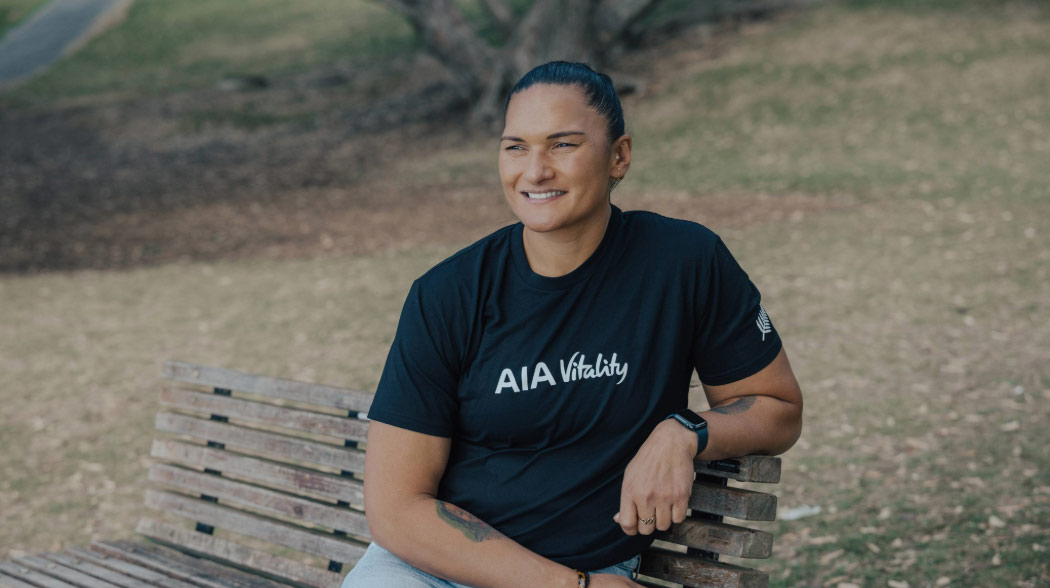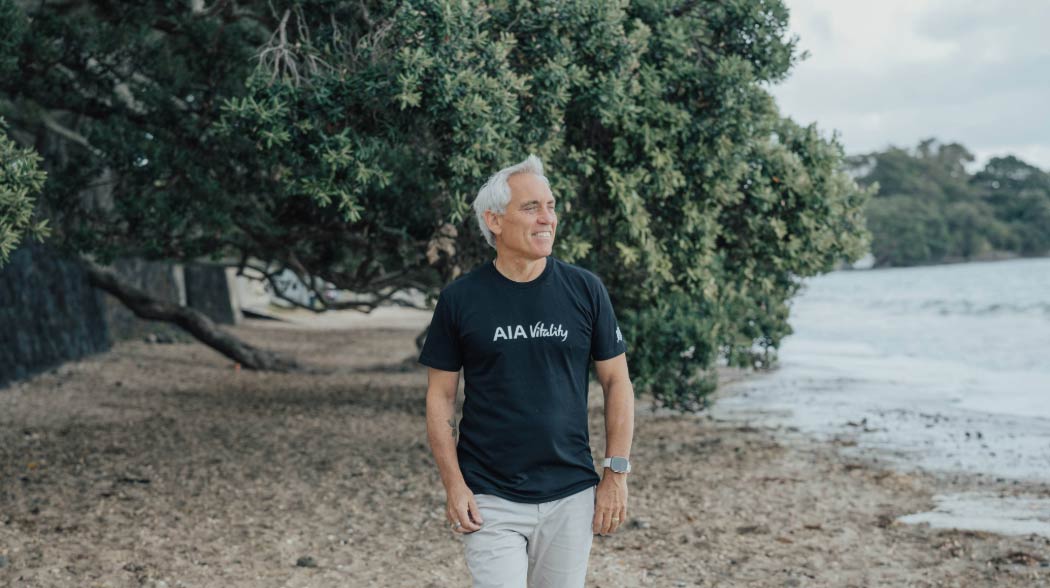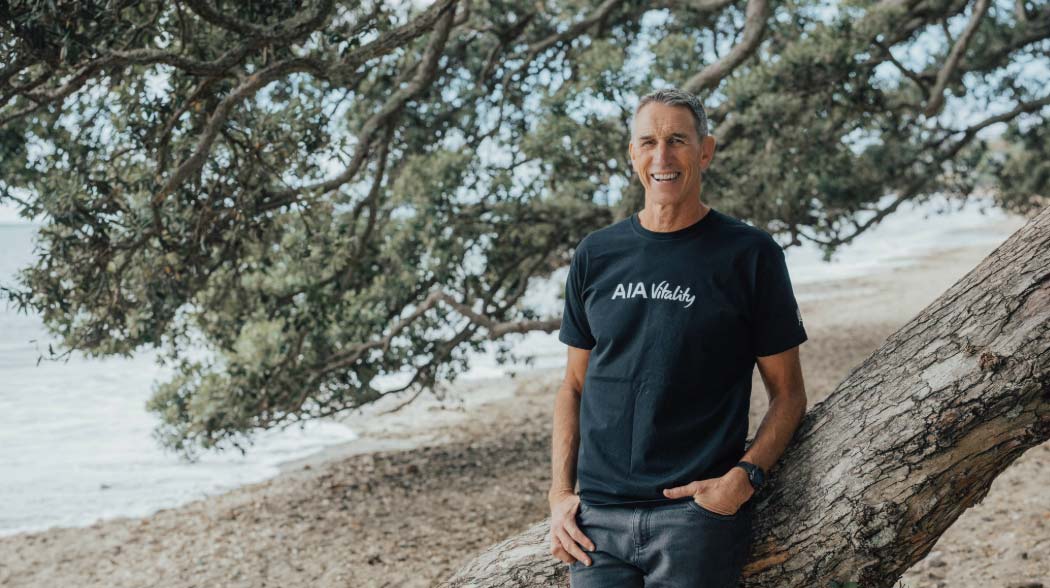From reproductive health to chronic conditions and fertility challenges, women globally face issues that frequently go unnoticed – and Aotearoa is no exception.
In New Zealand, around one in 10 women live with endometriosis1, while one in four will experience infertility, and for one in eight medical support is part of the journey to pregnancy2.
These aren’t just numbers on a page. They reflect the lived realities, struggles and triumphs of countless women and their families. Behind every number is a story of resilience, challenge and care. That’s why creating space for open, honest kōrero about women’s health is not only important, but essential for building greater understanding and support in our communities
AIA Vitality Ambassador Dame Valerie Adams has been using her platforms to help break down the stigma and encourage open conversations, sharing her own experiences with fertility challenges, endometriosis, IVF and returning to competition after childbirth.
Her story goes beyond the medals. It’s about the power of knowledge, reminding us why prioritising women’s health matters for us all. Here, Dame Valerie opens up about her personal journey beyond the medals.
Listening to my body
Looking back, I wish I had taken better care of myself and paid attention to what my body was trying to tell me.
Training at a high-performance level meant my focus was on injuries, recovery and chasing medals. Other health issues were pushed to the side. When I later discovered I had endometriosis, it explained the struggles I faced trying to start a family.
My biggest piece of advice: don’t ignore the signs. Investigate them. Knowledge is power.
My IVF journey
Like so many women, my dream of becoming a mother wasn’t straightforward. I went through IVF to have my two children – my daughter Kimoana and my son Tava. It was a journey filled with ups and downs, but ultimately, it gave me my greatest blessings.
IVF is not something often spoken about in my culture. For many Polynesian women, it’s frowned upon or simply not discussed. That made my journey isolating.
Everybody’s journey is different. But at the time, for me, it was really important was to only share my journey with the people I trust. You don’t need added judgement or pressure. It’s a rollercoaster: the hormones, the emotions, the physical toll and the financial burden, so surround yourself with those you know you can count on.
I’ve had unsuccessful cycles of IVF, and I know how devastating that can be. But if you’re on this path, be kind to yourself. If you’re with a partner, be open with each other. You’re both experiencing different emotions, even if they don’t feel the physical side. Support makes the world of difference.
And if you’re on this journey alone, seek out the networks that will lift you up. You are brave for even starting.
Returning to competition as a mum
In 2016, after having my first baby via C-section, I was back competing at the Commonwealth Games within six months. It wasn’t easy. Between training sessions I’d rush back to pump milk, and the sleepless nights with a newborn were tough. But I had support, and I held on to the belief that I could be both a mum and an athlete. Why can’t we do both?
It’s important to know your body and trust yourself. Athletes are often judged for training while pregnant or postpartum, but I knew my limits and worked closely with a medical team.
My message to other women: do what feels right for you. Don’t let outside noise drown out your instincts.
Managing mental health
The emotional ‘drop’ after a major competition is real. Before I had kids, it was harder. I was chasing the high of medals and afterwards there was often nothing grounding me. Motherhood changed that.
After a big event, your kids don’t care about the result. They just want you to cuddle them and be present. That perspective shift has been the greatest gift.
Today, what matters most is whether my kids come home to mum being there. That’s the new measure of success. And if children aren't part of your path, it’s about finding something else meaningful to anchor you, whether that’s a partner, whānau or something you’re passionate about outside of work or sport.
Changing the conversation
When I started, motherhood was often seen as a barrier in sport. Female athletes risked losing sponsorships for announcing pregnancies. I’m proud to have shown that it doesn’t have to be that way.
With support from my member federation and High Performance Sport New Zealand, I was able to return to competition, and now we see more female athletes worldwide doing the same.
It is possible to be both a mother and a competitor at the highest level. If you want to be a full-time mum, that’s amazing. If you want to return to sport, that’s amazing too. The important thing is that it’s your choice, not someone else’s decision.
Building a legacy through openness
Growing up, I didn’t fully understand what my own mum went through before she passed away from cervical cancer. That’s why I’m so passionate about breaking the cycle of silence around women’s health. Conversations about periods, smear tests, fertility and sexual health should not be taboo.
For me, it’s about being open with my daughter, so she feels confident to talk about anything. And teaching my son too, so he grows up understanding women’s health and supporting the women in his life.
I also want to encourage men, particularly in Polynesian communities, to take their health seriously. Too often, screenings like colonoscopies are ignored because of stigma. But these checks can save lives.
My message to women
Think of your health like a warrant of fitness. Every 6-12 months, book a full check up with your doctor.
Too often, women juggle so many roles that they put themselves last. But making that appointment is not selfish, it’s essential.
Fill your own health cup first. Because when we look after ourselves, we’re stronger and better equipped to care for the people we love.
Where to get help
- National Women’s Health (Auckland) - General enquiries
📞 09 367 0000
- Endometriosis New Zealand - Support and information
📞 0800 733 277
- Healthline - 24/7 free health advice service
📞 0800 611 116
- Fertility NZ - Support, information, peer groups
📞 0800 333 306
- Fertility Associates - Counselling and fertility services nationwide
- Repromed - Fertility counselling and emotional support
- Sexual Wellbeing Aotearoa (formerly Family Planning) — Sexual and reproductive health clinics and advice






